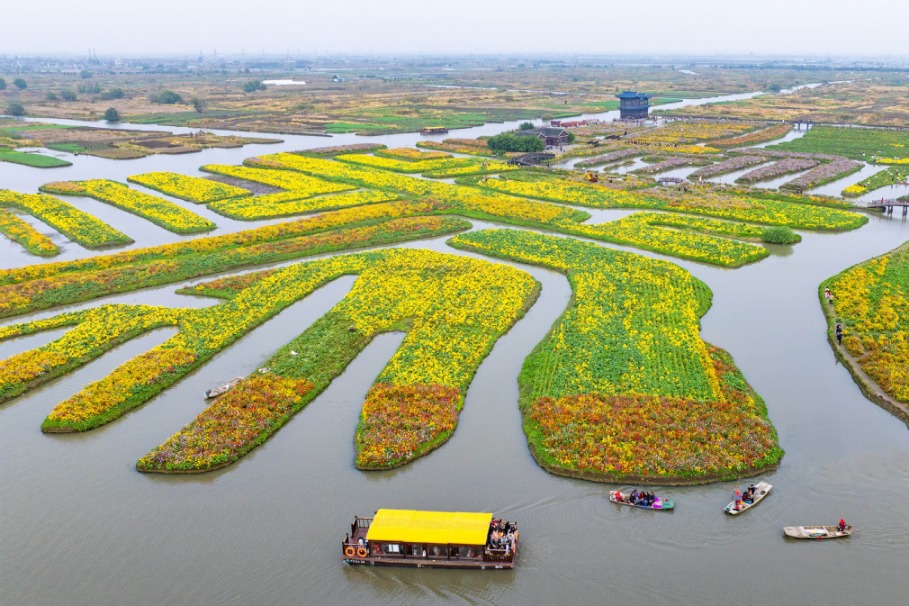Study outlines path to preserve country's arable land


A recent study published in the journal Science proposes a sustainable path for agriculture by harnessing nature-based plant-soil feedback principles in a bid to preserve soil quality.
This approach, which emphasizes the intricate interactions between plants and the abiotic and biotic properties of soils, aims to significantly reduce reliance on chemical inputs while boosting crop yields.
"The key to high-quality sustainable agriculture lies in soil quality," said Zhang Fusuo, an academician of the Chinese Academy of Engineering and a corresponding author of the study. He highlighted the urgent need for such solutions, noting that nearly 70 percent of China's arable land — 92.7 million hectares — is considered low to medium-yield, severely limiting agricultural output. Unhealthy soil can lead to an estimated annual loss of 1.5 tons of yield per hectare.
The study, first-authored by Wang Guangzhou, an associate professor at China Agricultural University, underscores how intensive agriculture, with its singular focus on production, has inadvertently damaged soil health, leading to salinization, acidification, structural barriers and infertility. Wang stressed the critical role of microorganisms in fostering plant growth, enhancing soil quality, and optimizing positive plant-soil feedback.
"At the individual plant level, we propose measures such as enhancing the release of root exudates, which act as chemical signals to beneficial microbes," Wang said.
Root-associated microbes help plants absorb nutrients and fend off pathogens. The researchers recommend tailoring microbial engineering technologies and developing synthetic microbial communities to optimize these interactions. Properly applied, such microbes could serve as eco-friendly alternatives to pesticides and fertilizers, Wang said.
He also warned against the long-term damage of monoculture. In one case in April, farmers in Hebei province reported a severe outbreak of bean root rot disease after 15 years of continuous monocropping, with roots turning from white to black. Wang recommended traditional practices such as crop rotation, intercropping, cover cropping and organic fertilization to counteract the buildup of host-specific pathogens and restore positive plant-soil feedback.
Real-world application of the study's principles has already yielded results. In Long'an county in the Guangxi Zhuang autonomous region, banana yields increased by 18 percent after farmers adopted soil feedback-based techniques, Zhang said.
The findings also hold potential for addressing major soil degradation issues in Northeast China's black soil region, which is under strain from intensive farming and erosion. By restoring balance between positive and negative plant-soil interactions, the researchers hope to revitalize fertility and promote climate resilience.
"Soil health is a fundamental, long-term and systematic endeavor," said Wang Hongye, an official with the Ministry of Agriculture and Rural Affairs. He added that the study offers both theoretical support and practical tools for improving the ecological function of farmland soils.
limenghan@chinadaily.com.cn
- Exhibition highlights historical and cultural roots of Guangdong, Hong Kong, Macao
- China showcases latest advances in metrology at Hunan exhibition
- New research by Nankai University offers hope to women affected by infertility
- Cultivation in Yunnan paves the way for 'durian freedom'
- HK, Taiwan volunteers share their passion at games' opening
- Local team wins Beijing's first robotics debate competition





































